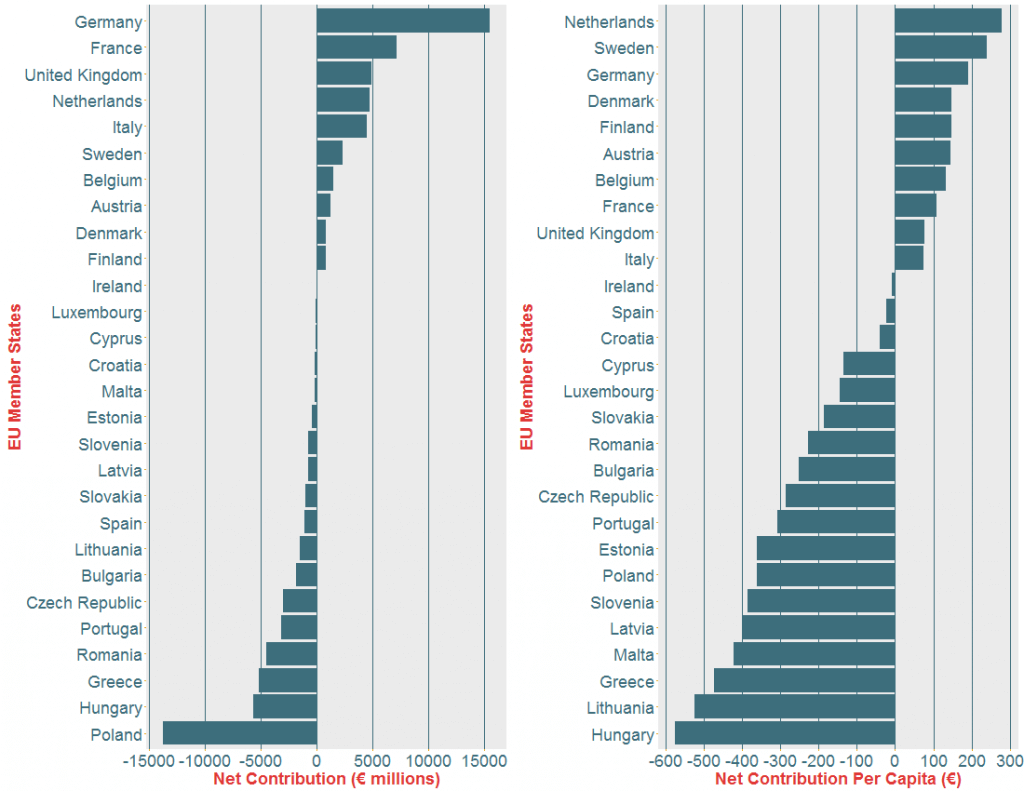Hungary and Poland pose worse threat to EU than Brexit
Unforeseen and shocking political developments in another member state have placed Ireland at the centre of the biggest crisis facing the EU. No, I am not talking about Brexit but the breakdown of the rule of law in Hungary and, particularly Poland.
Ireland’s central role in this comes from a case that has come before the Irish High Court. Artur Celmer is wanted by the Polish authorities for trial on a number of charges including drug trafficking. An EU law called the European Arrest Warrant made the extradition of people from one member state almost automatic.
However, politics has intervened. In recent years, the Hungarian and Polish governments have been criticised for adopting increasingly illiberal policies, particularly in relation to judicial independence.
Under EU law, the Irish authorities are required to trust the institutions of other member states. In extradition proceedings, if a court in an EU member state asks an Irish court to surrender someone for trial, the Irish court under EU law has to assume that that person will get a fair trial.
However, EU institutions have been openly doubting whether the Polish government respects judicial independence. So it was not surprising that the Irish High Court decided that it should ask the European Court whether it should continue to assume that people such as Celmer would get a fair trial if extradited to Poland. This decision caused an avalanche of criticism and abuse from leading pro-government figures in Poland.
The High Court decided it should ask the European Court whether it should continue to assume people such as Celmer would get a fair trial if extradited to Poland
The European Court ruled that the Irish court should verify whether there is a systemic problem in relation to judicial independence and whether there is a real risk that, if extradited, Celmer would suffer a breach of his right to a fair trial. The High Court has now decided to ask the Polish authorities for more information before it decides whether to surrender Celmer to them.
It is difficult to overstate the seriousness of this situation for the EU. Mutual recognition based on mutual trust between member states goes far beyond issues of extradition. Indeed, EU law as a whole is an elaborate web of duties on member states to recognise and enforce each other’s decisions.
In addition, as Idiotsavant and Oui have pointed out, the EU Parliament has voted by the required two-thirds majority to take the unprecedented step of initiating Chapter 7 disciplinary proceedings against Viktor Orbán’s authoritarian regime in Hungary: Proceedings which could result in Hungary being deprived of its voting rights within the EU.
For this threat to become a reality, however, all 27 other EU member states would have to support that next step. Poland has declared it will not support this, presumably to pre-empt the possibility of a similar action being taken against Poland.
So we have a standoff within the EU: Hungary and Poland are systematically seeking to undermine the democratic norms on which the EU is built, and there is nothing the EU can do about it, provided they remain united in their opposition to the rest of the EU. Or is there?

2014 figures
By a strange coincidence, Poland and Hungary are also the largest net beneficiaries of EU funds. Could the Commission – acting within it’s legal competences – slow down the disbursement of funds to Poland and Hungary until they become fully compliant with EU democratic norms?
More crucially, the next 7 year cycle of the EU budget is currently under negotiation. Cutbacks are going to have to be made because of the loss of the UK’s net contribution. The process could stall if there is a loss of trust that all EU members are implementing their EU responsibilities in accordance with the Treaties.
Poland and Hungary have the most to lose if that process breaks down and is replaced by only minimal emergency funding to keep EU institutions operational. Why should other EU states continue to fund them if they then proceed to undermine the very basis of EU solidarity? Certainly, it will be very difficult for any member to agree an increase in their net contribution while net beneficiaries flout EU norms.
Viktor Orbán and Andrzej Duda need to learn that cooperation and solidarity work both ways.



I know a significant part of the corruption engine powering Orban’s regime is laundering EU funds, so, yes, this is a real threat to them.